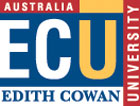Bachelor of Science (Paramedical Science)
Bachelor of Science (Paramedical Science)
It can be the difference between life and death. A highly-trained, clear-thinking professional paramedic regularly faces life and death situations as a first responder. It’s unpredictable. It’s demanding. And it’s exciting. But is it for you? Studying our Paramedicine degree will help you answer that question. Here, your studies will…
Categories
COURSE DESCRIPTION
It can be the difference between life and death. A highly-trained, clear-thinking professional paramedic regularly faces life and death situations as a first responder. It’s unpredictable. It’s demanding. And it’s exciting. But is it for you?
Studying our Paramedicine degree will help you answer that question. Here, your studies will include many hours in work placement experiences with WA-based healthcare providers. And our realistic on-campus simulations will help you develop practical skills, like pre-hospital diagnostic techniques, that are critical in this profession.
You’ll be taught by AHPRA registered industry professionals with on-road experience, with many still actively working in the profession. They’ll help you develop an understanding of professional and ethical practice, communication and safe practice within the public health, social, cultural and clinical paramedical science environments.
When you graduate, you can consider further specialisation across a range of postgraduate courses, including Critical Care Paramedicine, Extended Care Paramedicine and Disaster and Emergency Response.
Course learning outcomes
Apply in depth knowledge of paramedicine principles, concepts and procedures, in accordance with legal, ethical and professional regulations.
Communicate with diverse professional practitioners, patients and observers using appropriate literacies, language and interpersonal skills.
Demonstrate autonomy and accountability for ongoing learning, professional practice and development of self and others.
Demonstrate respect for cultural diversity, including Aboriginal and Torres Strait Islander cultures, and provide patient care with dignity and sensitivity.
Think critically to analyse, interpret and synthesise complex information from multiple sources to provide patients with safe clinical care.
Use clinical reasoning, judgement and problem-solving skills to formulate appropriate paramedic responses to patient problems in the emergency care environment.
Use digital technologies and multiple literacies to access, evaluate and share the key concepts of paramedic practice from globally diverse sources.
Work collaboratively with health practitioners, maintaining and enhancing the safety and health of self, patients and others in diverse work environments.
Career Opportunities
This course prepares graduates to practice high quality evidence-based paramedicine in a wide spectrum of health and cultural settings, and to lead Australian and international paramedicine development.
Possible future job titles
Paramedic, Critical Care Paramedic, Community Paramedic, Industrial Paramedic, Ambulance Officer, Intensive Care Paramedic, Retrieval Paramedic
REQUIREMENTS
There are various ways to meet our admission requirements, such as:
Secondary school results
Successful completion of one year of tertiary study from a recognised institution
Completed Diploma program from a recognised institution
English competency requirements:
IELTS Academic with a minimum overall score of 7.0 and a minimum score of 7.0 in each of the four components (listening, reading, writing and speaking), or
Pearson English Test (PTE) Academic with a minimum overall score of 65 and a minimum score of 65 in each of the four communicative skills (listening, reading, writing and speaking), or
TOEFL iBT with a minimum total score of 94 and the following minimum score in each section of the test:
• 24 for listening
• 24 for reading,
• 27 for writing, and
• 23 for speaking
EDUCATIONAL INSTITUTION
Edith Cowan University (ECU) is a large, multi-campus institution serving communities in Western Australia and internationally.ECU was awarded university status in 1991, but despite its relative youth, the University has a proud history of more than a century of service to education in Western Australia and is recognised for its teaching and learning, excellence in research, and partnerships with the community.We have more than 23,300 students, including around 18,500 undergraduates and 4,800 postgraduates. Approximately 3,600 international students attend the University, originating from 104 countries.We are a progressive University with courses developed through ongoing industry input, and employing lecturers who engage fully with their students. We’re a university that knows while knowledge is important, understanding comes from experience –experience that enables you to adapt what you’ve learned to whatever opportunities come your way. Because that’s when you do more than just survive in this world. You thrive in it.




